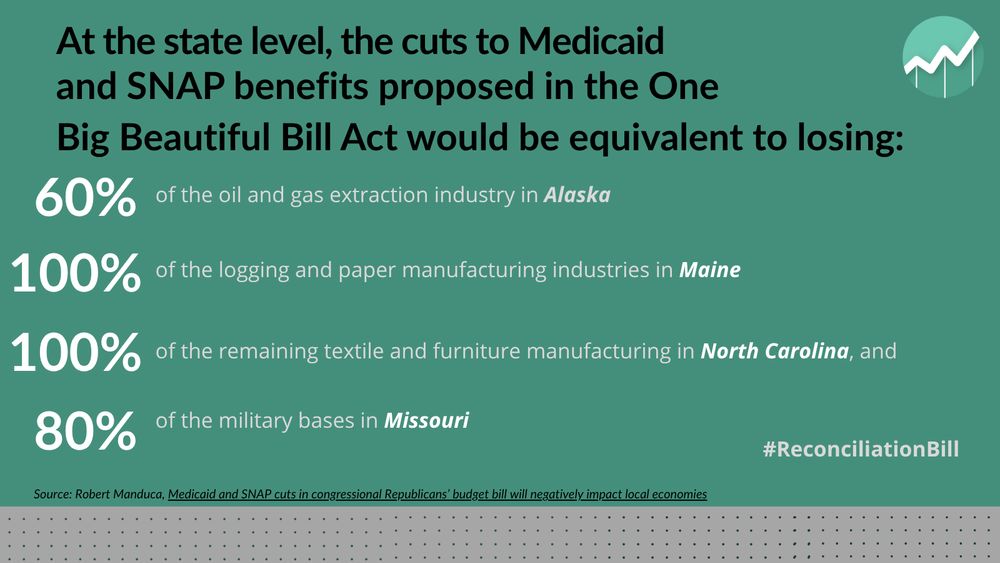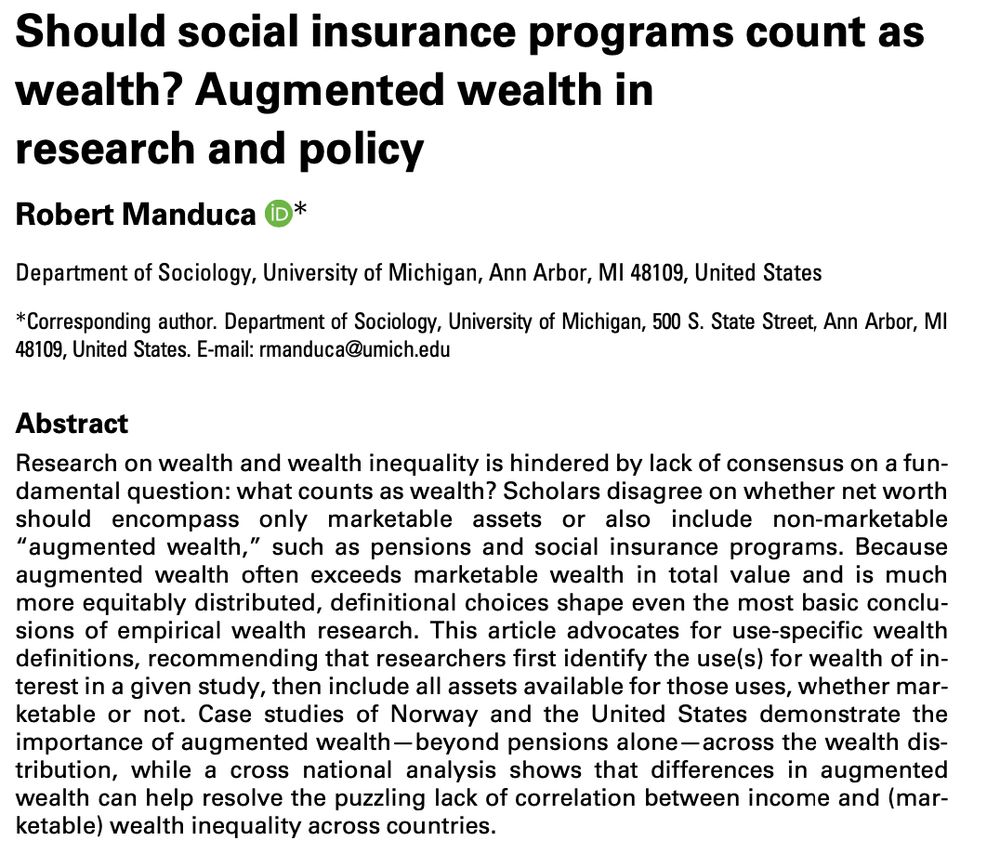





Also see: equitablegrowth.org/medicaid-and...
Also see: equitablegrowth.org/medicaid-and...
www.marketwatch.com/story/how-th...

www.marketwatch.com/story/how-th...

58% of military in CA-22 (Valadao)
223% of water transport (Staten Island ferries! largest private industry in district) in NY-11 (Malliotakis)
100% of pipeline transport in TX-15 (De La Cruz)
equitablegrowth.org/medicaid-and... h/t @robertmanduca.bsky.social @equitablegrowth.bsky.social

58% of military in CA-22 (Valadao)
223% of water transport (Staten Island ferries! largest private industry in district) in NY-11 (Malliotakis)
100% of pipeline transport in TX-15 (De La Cruz)
equitablegrowth.org/medicaid-and... h/t @robertmanduca.bsky.social @equitablegrowth.bsky.social
equitablegrowth.org/medicaid-and...

equitablegrowth.org/medicaid-and...
equitablegrowth.org/working-pape...

equitablegrowth.org/working-pape...
@robertmanduca.bsky.social on Medicaid and SNAP cuts impacting local economies:

@robertmanduca.bsky.social on Medicaid and SNAP cuts impacting local economies:
Join us for an online conversation with author @robertmanduca.bsky.social on his article, “Should social insurance programs count as wealth? Augmented wealth in research and policy.”
📅Friday, June 27th, 8AM PDT / 11AM EDT / 5PM CET via Zoom.
Register here: umich.zoom.us/meeting/regi...


theconversation.com/youre-probab...

theconversation.com/youre-probab...
the marginal voter has concerns orthogonal to the dimensions of contestation btw the parties. it's much more frequent just to care abt other things than to deeply care abt yet be perfectly balanced btw the candidates' issues. www.interfluidity.com/v2/7687.html
the marginal voter has concerns orthogonal to the dimensions of contestation btw the parties. it's much more frequent just to care abt other things than to deeply care abt yet be perfectly balanced btw the candidates' issues. www.interfluidity.com/v2/7687.html

www.sciencedirect.com/science/arti...

www.sciencedirect.com/science/arti...

Limiting access to data or taking data offline would have huge consequences for everyone from startups to large corporations.
Limiting access to data or taking data offline would have huge consequences for everyone from startups to large corporations.

